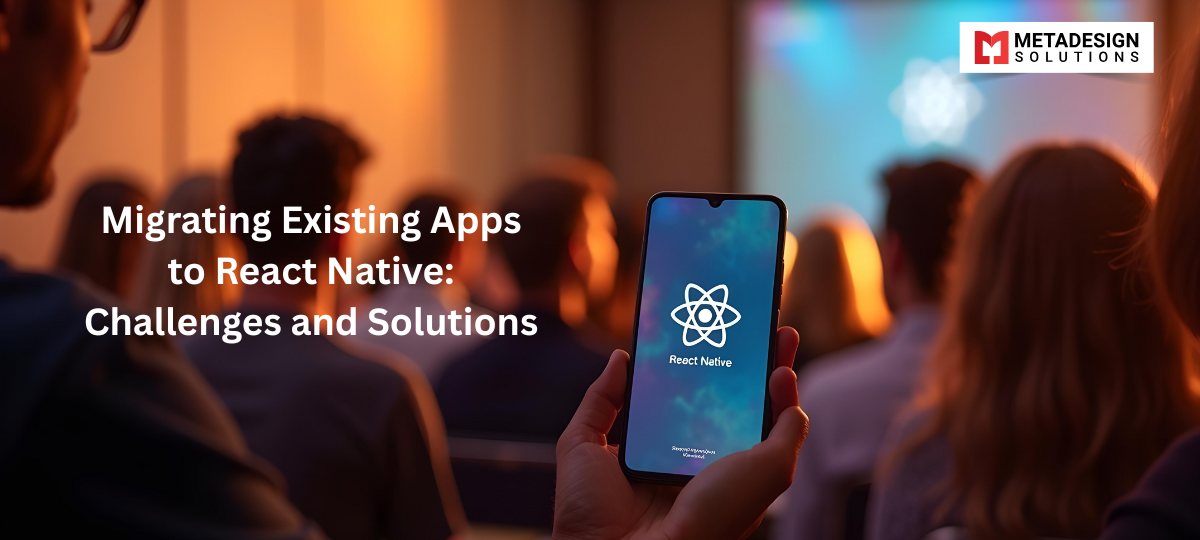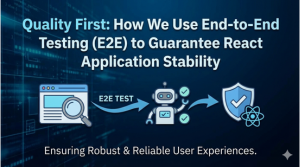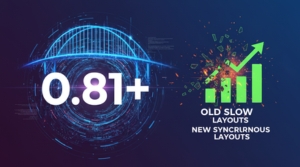Migrating an existing application to React Native can offer numerous benefits, including cross-platform compatibility, faster development cycles, and a unified codebase. However, the migration process comes with its own set of challenges.
At MetaDesign Solutions, we’ve successfully guided clients through the migration journey with our React Native app development services. In this blog, I’ll discuss common challenges and provide solutions to help you smoothly transition your app to React Native.
Why Migrate to React Native?
- Cross-Platform Development: Build for both iOS and Android with a single codebase.
- Cost Efficiency: Reduce development and maintenance costs.
- Community Support: Leverage a vast ecosystem of libraries and tools.
- Performance: Achieve near-native performance with React Native components.
Common Challenges and Solutions
1. Architectural Differences
Challenge: Legacy apps may have architectures that don’t align with React Native’s component-based structure.
Solution:
- Modularization: Break down the existing app into smaller, reusable components.
- Hybrid Approach: Gradually integrate React Native components into the existing app (brownfield approach).
- Refactoring: Redesign the app’s architecture to suit React Native’s paradigms.
2. Platform-Specific Features
Challenge: Handling platform-specific functionalities and APIs.
Solution:
- Native Modules: Create custom native modules to bridge platform-specific features.
- Third-Party Libraries: Utilize existing libraries that provide cross-platform support.
- Conditional Rendering: Use platform checks to render platform-specific components.
3. UI/UX Consistency
Challenge: Maintaining a consistent user interface and experience across platforms.
Solution:
- StyleSheet: Use React Native’s StyleSheet for consistent styling.
- Theming: Implement a theming system to manage styles globally.
- Testing: Regularly test the app on both platforms to identify and fix inconsistencies.
4. Performance Optimization
Challenge: Potential performance issues due to inefficient code or improper use of components.
Solution:
- Profiling Tools: Use tools like Flipper to identify performance bottlenecks.
- Optimized Components: Replace heavy components with optimized ones (e.g., use FlatList instead of ScrollView for long lists) to build Reusable React Components that enhance performance and maintainability.
- Memoization: Use React.memo and useMemo to prevent unnecessary re-renders.
5. State Management
Challenge: Managing complex state across the app.
Solution:
- Choose the Right Library: Select a state management solution that fits your app’s needs (e.g., Redux, Recoil, MobX).
- Modular State: Organize state management logically to keep it maintainable.
- Local vs. Global State: Use local state for component-specific data and global state for shared data.
6. Codebase Size and Complexity
Challenge: A large codebase can make migration daunting.
Solution:
- Incremental Migration: Migrate features one at a time to manage complexity.
- Code Review: Regularly review and refactor code to improve quality.
- Automated Testing: Implement tests to ensure new code doesn’t break existing functionality.
Thinking About Moving to React Native?
Book a call to discuss a risk-free migration strategy tailored to your app.
Best Practices for Migration
- Plan Thoroughly: Outline the migration strategy before starting.
- Set Milestones: Break the migration into manageable phases.
- Maintain Documentation: Keep detailed records of changes for future reference.
- Engage the Team: Involve all stakeholders to ensure alignment.
How MetaDesign Solutions Can Assist
Migrating to React Native is a significant undertaking that requires careful planning and expertise.
Our Services:
- Assessment: Evaluate your current app and provide a migration roadmap.
- Customized Strategy: Develop a migration plan tailored to your specific needs.
- Implementation: Execute the migration using best practices.
- Testing and QA: Ensure the migrated app performs flawlessly.
- Training: Equip your team with the necessary skills in React Native.
Why Choose Us:
- Experience: Extensive experience in migrating apps to React Native.
- Technical Expertise: Proficient in both legacy systems and modern frameworks.
- Client-Centric Approach: Focused on delivering solutions that align with your business goals.
Get in Touch
Considering migrating your app to React Native? It’s essential to evaluate factors like performance, scalability, and React app development cost before making the transition.
Contact us at sales@metadesignsolutions.com to discuss your project.
Related Keyword:
#ReactNativeMigration #AppMigrationToReactNative #ReactNativeChallenges #ReactNativeSolutions #MigratingToReactNative #CrossPlatformMigration #AppMigrationSolutions #ReactNativeDev #ReactNativeDevelopment #AppTransformation #NativeToReactNative #ReactNativeApps #MobileAppMigration #ReactNativeUpgrade #ReactNativeDevelopmentServices #ReactNativeExperts #AppMigration #MobileAppDevelopment #ReactNativeConsulting #ReactNativeServices #AppRebuild #ReactNativeSolutions #CrossPlatformAppDevelopment #AppDevelopmentServices #ReactNativeDevelopmentExperts #ReactNativeConsultingServices



